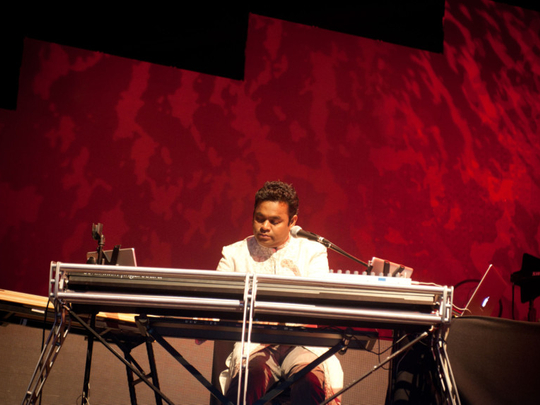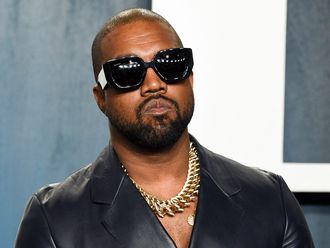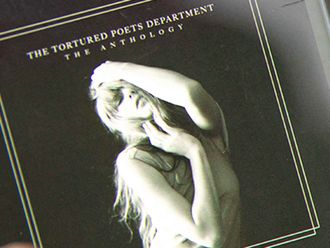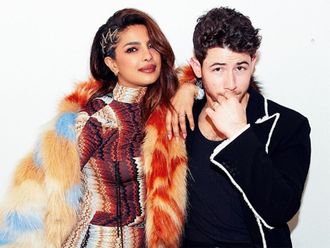
With two Academy awards, two Grammys, a Bafta, a Golden Globe and four Indian National Film Awards under his belt, A. R. Rahman has often been hailed by Indian media as the Mozart of Madras, a reference to the old name of Chennai, the city of his birth, for some time now. But the Slumdog Millionaire composer says he doesn’t like the title.
“Mozart is great and I don’t want fans of Mozart to hate me. I just want to be called by my beautiful name,” he told Gulf News tabloid! during an interview in Dubai last month. Rahman met us ahead of his press conference to announce Mathrubhumi A. R. Rahman Live 2017 at Sharjah Cricket Stadium on March 17, a show he said he was looking forward to as it would be a “sort of reunion”.
“UAE was the first to give us a successful concert back in 1997-98,” he said. “I still get people coming to me and saying ‘Oh I was at the first Dubai show’. So it was a very important show for us at that time and when I come back here, I’m always reminded of that beautiful memory.”
Rahman’s career began with a bang 25 years ago when he won the first of his four Indian National Film Awards for his first film, Roja. His latest work can be heard in Viceroy’s House, directed by British filmmaker Gurinder Chadha. The film’s score floats between the typical English ballroom music with string instruments and haunting flute renditions, to give it the period feel that the film demanded.
“Gurinder’s expectation was to have something very classic, very rooted and at the same time universal,” he said. “I’ve used the sarangi [a traditional Indian string instrument], a string and brass orchestra, a lot of flute — mainly classical instruments.”
Rahman was returning from Canada, where he directed Le Musk, a virtual reality short film.
“I wouldn’t call it ‘direction’, it’s more a [visionary experience]. It’s just a virtual reality short and I’ve been learning about [virtual reality] for a year and a half now. I’ve been researching and watching clips... To do virtual reality you need to forget 2D completely and rethink [filming]. So this was easier for me, yet more challenging,” Rahman said. “Especially in the project Le Musk, the whole idea of putting music as the platform for it is to experience music in this interesting way, that is, 3D [with] 360 [degrees], with smell and many other things that I’ve added. It’s a whole new experience, like an installation of art.
“I think for music you need to stay away from things which are done. Sometimes it can be cyclic, sometimes what happened in the ‘70s could become a refresh now. But there’s a truth in music. The external covering changes but the internal feel of it — whether it’s a vocal line or a riff or melody – it’ll always bring something beautiful to your heart. Also, I try making songs that I feel happy about, whether they are new or I re-do old ones. You constantly evolve. The difficulty about being creatively involved is not being yourself [all the time]. You are doing the same thing that people love in different ways. And those ways you have to constantly keep discovering,” said the music maestro who has given us hit music in films such as Lagaan, Minsara Kanavu and Kannathil Muthamittal.
Speaking of re-interpretations, one of his hits, Humma from the 1996 Bombay, was recently featured in the Hindi remake of Mani Ratnam’s Tamil film O Kadhal Kanmani. But the composer clarified he didn’t do the Humma remix in Shaad Ali-directed OK Jaanu as he didn’t feel motivated. The song was remixed by rapper Badshah for the film.
But in a way, he started a new trend by crowd-sourcing lyrics for the re-interpretation of his 1994 hit Urvasi from the Tamil romantic comedy Kadhalan.
“Urvasi was done because we felt some of the lines were dated on that — for example, there’s no Chitrahaar [Indian TV show featuring film songs] anymore. So we wanted to update it. A lot of musicians do that. [A song may have been sung] in the late 1960s but the lyrics may reflect the situations today. So I thought Urvasi would be the right thing for what I wanted to give to the people. It is because I respect people, I respect their thoughts and sometimes we take cues from what they say. I read blogs, I read news and think ‘Oh, that’s nice. I could do that’. But of course, within my limitations. And some of the lyrics are actually what the people have written to us, not just ideas,” he said.
Some of the lyrics that feature in the new version are highly political, even though Rahman says he wasn’t being judgemental.
“It’s not political per se. The song says ‘Take it easy’ when some difficulties come your way. But it doesn’t say anything is good or bad. I’m not someone to be judgemental about what happens. You never know the inclination of any person till after 50 years. So this is just fun,” Rahman added.
Rahman is currently working on a film called 99 Songs, directed by Vishwesh Krishnamoorthy, for which he’s not only composed the score, but written the story. But all he will say about it is “it’s a love story — of course”.
“It’s about self-discovery, and we hope to bring a completely new vision to filmmaking and music with it,” said Rahman.
Speaking of self-discovery, was there anything in the last quarter of a century that he would re-interpret?
“I feel very blessed for this whole journey. For doing things, for not doing things, for missing out on things — for everything I feel blessed,” he said. “Everything comes with a price. Good things come at a bad price, bad things come with the good things — they are hidden. That’s how I think of life, not repenting about anything at all because that’s the time to change.”
Don’t miss it!
A. R. Rahman Live 2017 will be held at Sharjah Cricket Stadium on March 17. Tickets start at Dh50 at platinumlist.net.













